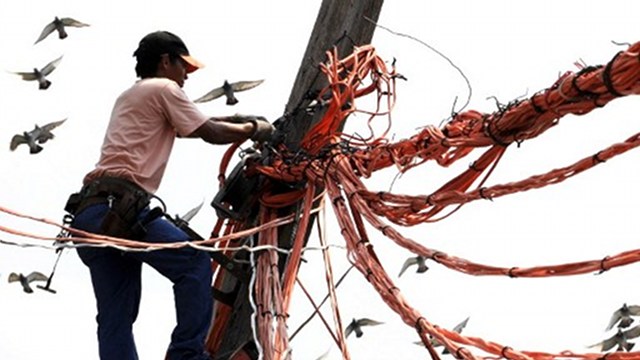SUMMARY
This is AI generated summarization, which may have errors. For context, always refer to the full article.

MANILA, Philippines – The government will not condone the debts of electric cooperatives to the Power Sector Assets and Liabilities Management Corp. (Psalm), according to Energy Secretary Carlos Jericho Petilla.
The energy chief stressed this when asked to react about the electric distributors’ debts to the state agency reportedly ballooning to about P30 billion from P14 billion in 2012.
Officials at the Department of Energy (DOE) who asked not to be named said the almost doubling of the debts were due to mismanagement and intervention by politicians in the cooperatives’ host provinces.
“The Republic will not condone these loans,” said Petilla, himself a former local government official.
Several cities and towns, including Albay, Olongapo, Pantabangan in Nueva Ecija and Lanao in Mindanao, had faced power cuts due to unpaid loans to the power generation companies or the government.
Read:
Pay bill or face blackouts, electric cooperatives told
Keep politics out of energy sector
Psalm oversees the operations of state-owned National Power Corp’s plants and independent power producer (IPP) contracts.
New law
He said he is banking on the new law strengthening the charter of the National Electrification Administration (NEA) to help address the problem. NEA oversees electric cooperatives tasked to distribute power in the various rural and urban areas around the country.
With NEA, the DOE can now predict or assess which cooperatives would default at a certain period and not act only when it has defaulted on its debts. These assessments take into account electricity demand projections, the salary of the cooperatives’ officials and system losses, Petilla said.
“NEA should be able to have a monthly projection for the next 20 years for each EC’s revenues and losses to determine if it would default and why it would default,” Petilla said.
President Benigno Aquino III signed NEA reform measure into law on May 7 to give NEA more teeth over electric cooperatives, some of which are financially bleeding and heavily indebted because of mismanagement and unpaid services.
The law increased NEA’s authorized capital stock to P25 billion from P1 billion, and allowed NEA to act as guarantor to electric cooperatives in their transactions to various parties, including their power supply contracts.
It also allows NEA to take over ailing cooperatives.
“The NEA shall immediately step-in and take over from its board the operations of any ailing electric cooperative. Within a reasonable period after take-over, the NEA may convert the ailing cooperative to either a stock cooperative registered with the Cooperative Development Authority or a stock corporation registered with the Securities and Exchange Commission,” the legislation stated.
NEA now required electric cooperatives to submit reports regarding their operations, including monthly financial reports, engineering reports, audited financial statements, annual cash operating budget, 5-year investment plan as well as summary of complaints received. – Rappler.com
Add a comment
How does this make you feel?
There are no comments yet. Add your comment to start the conversation.